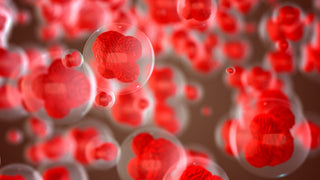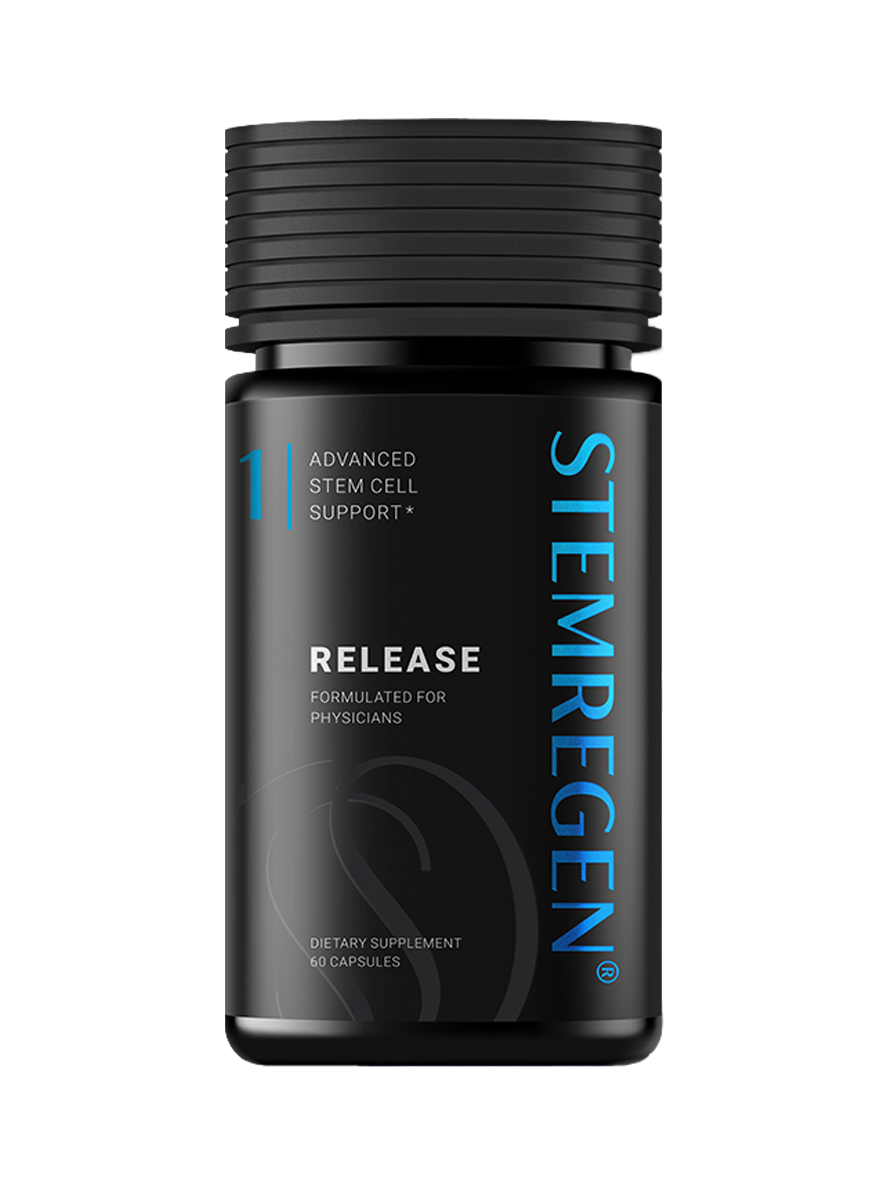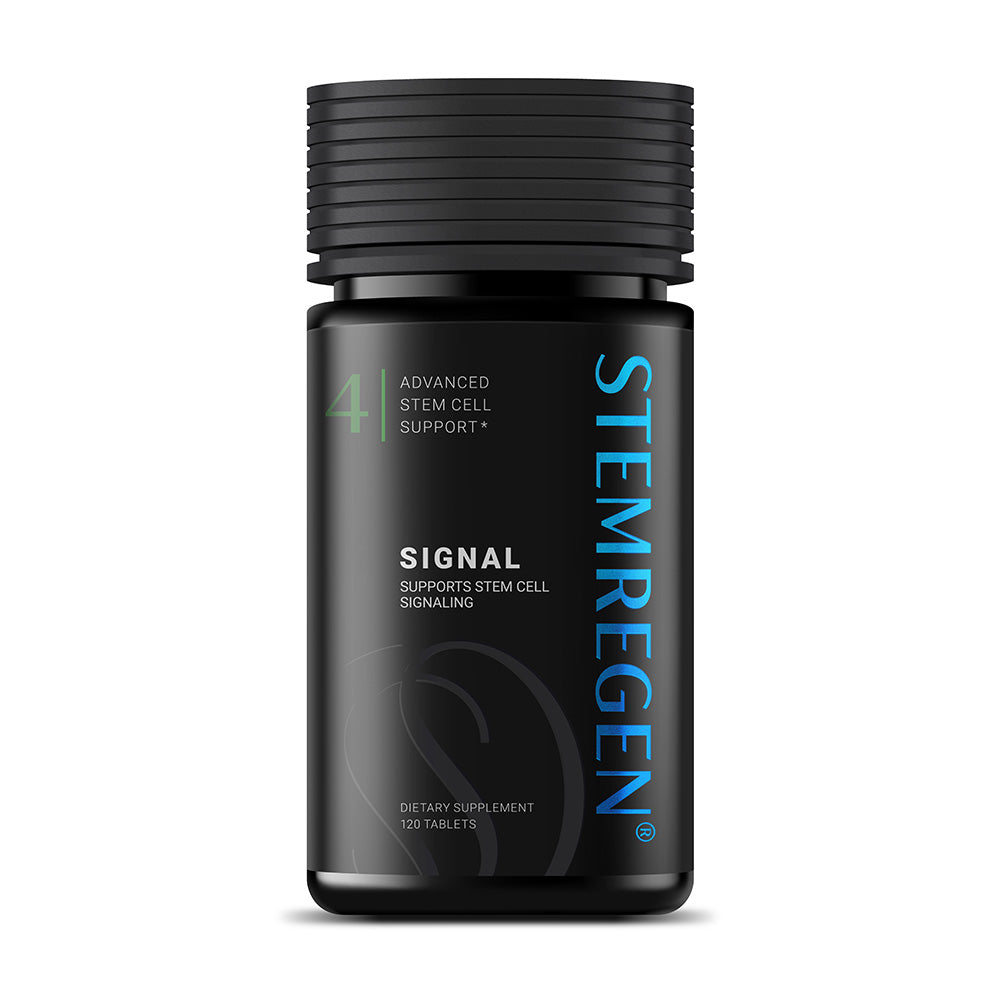What are Stem Cells and What Do They Do?
Stem cells are the body's master cells, capable of developing into various specialised cell types. They play a crucial role in growth, repair, and regeneration, making them a key focus in medical research and treatments.
What is your Repair System?
The body's innate repair system is fundamentally driven by stem cells, which travel throughout the body to repair damaged tissues whenever an injury occurs. For instance when the skin is cut, the body immediately signals for repair by producing specific compounds that trigger the release of stem cells from the bone marrow, and then another compound that attracts stem cells to the site of the injury. Once the stem cells reach the damaged area, they migrate into the tissue and drive the repair process. This is how the body has healed since the day we were born.
The process also occurs daily as part of the natural process of tissue turnover. Every day we lose cells and every day our stem cells replace the cells that have been lost, constantly renewing our organs and tissues to maintain our natural vibrant health.
Types of Stem Cells
Stem cells are categorised into different types based on their ability to differentiate:
- Embryonic Stem Cells – Found in early-stage embryos, these cells can develop into any cell type in the body.
- Adult Stem Cells – Located in tissues like bone marrow and skin, they help repair and maintain specific organs.
- Induced Pluripotent Stem Cells (iPSCs) – Created in labs by reprogramming adult cells, offering potential for regenerative medicine.
How Stem Cells Function
Stem cells have two unique abilities:
- Self-renewal – They can divide and create identical copies of themselves.
-
Differentiation – They can transform into specialised cells, such as blood, nerve, or muscle cells.
Medical Applications of Stem Cells
Stem cells are being explored for ground-breaking treatments, including:
- Regenerative Medicine – Used to repair damaged tissues, such as in heart disease or spinal cord injuries.
- Blood Disorders & Cancer Treatment – Bone marrow transplants utilise stem cells to treat leukaemia and lymphoma.
-
Neurological Conditions – Research suggests stem cells may help in treating Parkinson’s disease and multiple sclerosis.
Ethical Considerations & Challenges
While stem cell research holds immense promise, ethical concerns arise, particularly regarding embryonic stem cells. Scientists are working on alternatives, such as iPSCs, to address these concerns while advancing medical breakthroughs.
|
Stemregen Supplements Release - 60 Capsules |
What Depletes Stem Cells?
Stem cells are essential for tissue repair, regeneration, and overall health. However, various factors can lead to stem cell depletion, reducing their ability to function effectively. Understanding these causes can help in developing strategies to maintain stem cell health and longevity. Causes of stem cell depletion includes;
Aging & Stem Cell Exhaustion
As we age, stem cells experience stress, DNA damage, and reduced regenerative capacity. This process, known as stem cell exhaustion, is a hallmark of aging and contributes to tissue deterioration.
Oxidative Stress & DNA Damage
Stem cells are exposed to environmental toxins, radiation, and metabolic by-products, which generate reactive oxygen species (ROS). These molecules cause oxidative stress, leading to DNA damage and impaired stem cell function.
Telomere Shortening
Telomeres are protective caps on the ends of chromosomes. With each cell division, telomeres shorten, eventually leading to cell aging and death. Stem cells rely on telomerase to maintain telomere length, but this process declines over time.
Chronic Inflammation
Persistent inflammation can negatively impact stem cells by disrupting their ability to regenerate. Conditions such as autoimmune diseases and prolonged infections accelerate stem cell depletion.
Lifestyle Factors
Poor diet, lack of exercise, and exposure to harmful substances can reduce stem cell viability. Studies suggest that nutrient-rich diets, regular physical activity, and stress management can help preserve stem cell health.
Can Stem Cell Depletion Be Reversed?
Recent research has explored ways to rejuvenate stem cells, including:
- Reducing oxidative stress through antioxidants.
- Stem cell therapies to replenish depleted cells.
- Lifestyle modifications to support stem cell function.
How to Increase Stem Cells
Stem cells are essential for tissue repair, regeneration, and overall health. If you've learned about their benefits and what depletes them, you may be wondering how to boost stem cell production naturally. Fortunately, several lifestyle choices, dietary habits, and scientific approaches can help replenish and enhance stem cell function.
Herbs That Increase Stem Cells
Certain herbs contain bioactive compounds that promote stem cell proliferation and differentiation. Studies indicate that herbal remedies such as ginseng, turmeric, moringa, and astragalus may enhance stem cell growth. Ginseng, for example, has been found to activate pathways involved in cell regeneration, while turmeric’s curcumin supports tissue repair and anti-inflammatory responses.
Nutrient-Rich Diet
A diet rich in polyphenols, antioxidants, and anti-inflammatory foods can support stem cell production. Foods such as berries, green tea, olive oil, and fatty fish have been shown to stimulate stem cell activity.
Exercise & Physical Activity
Regular aerobic exercise improves cardiovascular health and encourages stem cells to differentiate into bone rather than fat. Studies suggest that high-intensity interval training (HIIT) may be particularly effective in boosting stem cell function.
Sleep & Stress Management
Quality sleep is crucial for stem cell repair and regeneration. Additionally, stress-reduction techniques like meditation, yoga, and deep breathing create a favourable environment for stem cell activity.
Fasting and Stem Cells
Fasting has been shown to stimulate stem cell regeneration by triggering autophagy—a process that removes damaged cells and encourages new stem cell growth. Research from MIT suggests that fasting enhances the regenerative abilities of intestinal stem cells, helping the body recover from injuries. Additionally, prolonged fasting (48–120 hours) has been linked to increased immune system regulation and cellular rejuvenation.
Vitamins for Stem Cell Regeneration
Below, we explore the key vitamins that contribute to stem cell regeneration and how they enhance the body's natural healing processes.
Vitamin D
Vitamin D is essential for stem cell proliferation and immune system support. Studies suggest that it helps regulate stem cell differentiation, ensuring proper tissue repair and regeneration. Sources of vitamin D include fatty fish, fortified dairy products, and sunlight exposure.
Vitamin C
Vitamin C acts as a powerful antioxidant, protecting stem cells from oxidative stress and DNA damage. Research indicates that vitamin C enhances stem cell function and proliferation, making it a vital nutrient for cellular health. Citrus fruits, bell peppers, and leafy greens are excellent sources.
Vitamin E
Vitamin E supports cell membrane integrity and reduces inflammation, both of which are crucial for stem cell survival. Studies show that vitamin E can improve stem cell function and proliferation, aiding in tissue repair. Nuts, seeds, and spinach are rich in vitamin E.
Vitamin B12 & Folic Acid
Both vitamin B12 and folic acid play a role in DNA synthesis and cell division, making them essential for stem cell regeneration. Research suggests that these vitamins enhance stem cell differentiation and function, supporting overall cellular health. Sources include eggs, dairy, and leafy greens.
Zinc & Magnesium
Zinc aids in DNA synthesis and cellular repair, while magnesium is critical for cellular energy production. Both minerals contribute to stem cell health and regeneration, ensuring optimal function. Nuts, seeds, and legumes are excellent sources.
Stemregen: A Powerful Stem Cell Support Supplement
Stemregen is a scientifically advanced supplement designed to enhance the body's natural stem cell production. It works by boosting stem cell release from the bone marrow, improving circulation, and optimising cellular signalling for tissue repair. With a blend of natural ingredients, Stemregen supports healthy aging, recovery, and longevity.
|
Stemregen Supplements Signal - 120 Capsules |
Stem cells are revolutionising medicine, offering hope for treating previously incurable diseases. As research progresses, their potential applications continue to expand, making them a vital area of scientific exploration.
Supplement Hub expertly curates a premium range of supplements and vitamins designed to support healthy aging from the inside out. Our anti-aging collection features science-backed products that promote cellular health and overall vitality. With a commitment to quality and transparency, we partner with trusted brands like STEMREGEN, Quicksilver Scientific, and Pure Encapsulations to deliver targeted solutions that help you age with confidence and energy. Whether you're looking to boost stem cell activity or simply feel your best, Supplement Hub offers a trusted path to graceful aging.





